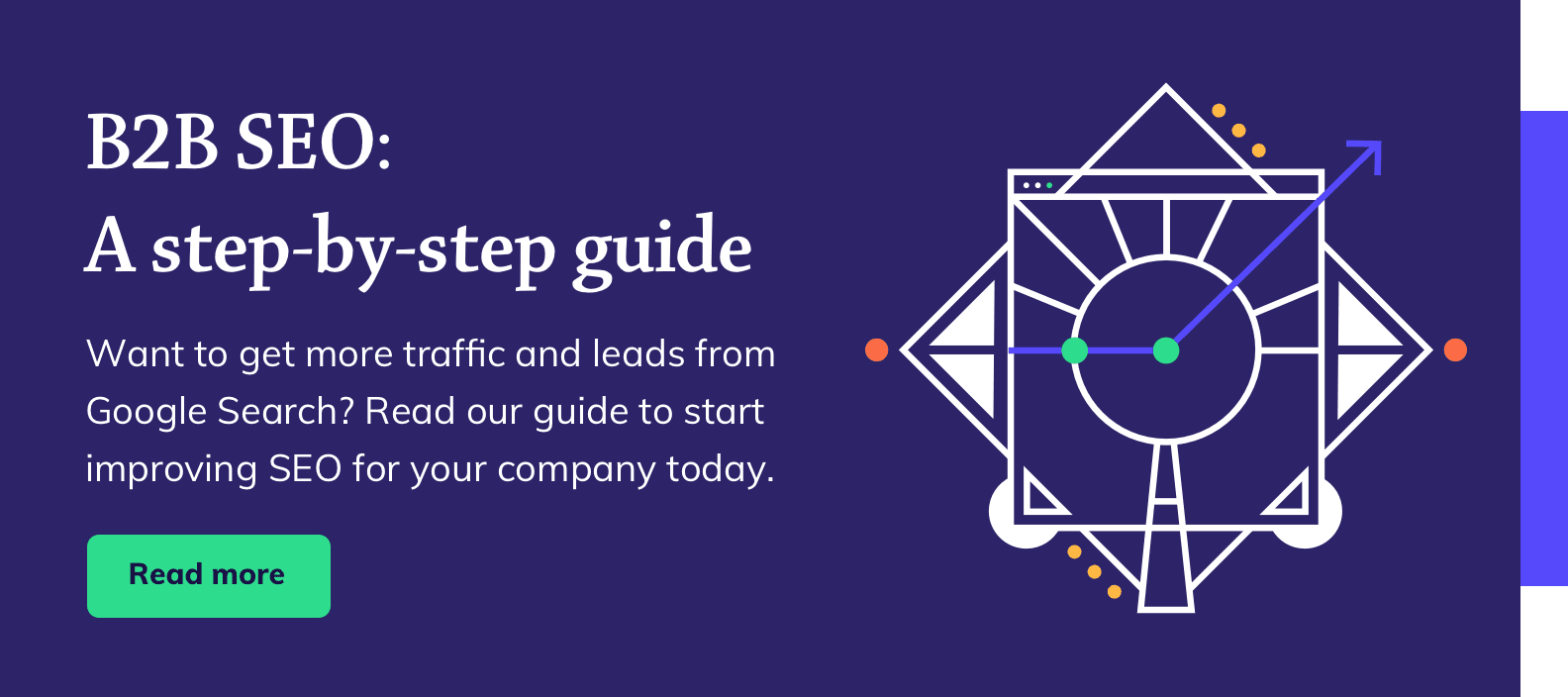Commercial keywords help your commercial web pages appear in front of your ideal buyer at the right time. When a buyer is ready to commit to a sale, these critical keywords make it easy for them to find the right page and complete their journey.
What are commercial keywords?
Commercial keywords are keywords related to search queries that indicate intent to buy. Sounds simple, right?
But in B2B SEO, they’re more than “buy now” transactional keywords.
Think about how you procure a product or service in your business – sometimes, you want to buy a thing (a project management tool, for example), so you search precisely for a special brand. But you might look for a specific feature or module. You might want to review pricing tiers or see a demo before committing in full.
All these scenarios express an intent to buy.
Due to the stage buyers are at on their journey when using commercial keywords, organic traffic from these types of keywords has a far higher chance of converting to pipeline.
Types of commercial keywords
There are two types of commercial keywords:
- Buy-now
- Product/solution
Buy-now keywords include terms like “buy”, “discount”, or “deal” in the B2C space. In B2B, we consider “demo”, “service”, or “vendor” as buy-now keywords. But generally, we don’t see many buy-now keywords used in B2B because the buyer journey is much longer.
In B2B, product and solution keywords include terms like:
- Brand names (Oracle, HubSpot)
- Specific products/services (project management software, website design agency)
- Pricing (HubSpot pricing, Office 365 pricing tiers)
- Review (Mail Chimp review, Salesforce vs. Zendesk)
- Software/platform (project management software, email marketing platform)
High commercial intent vs. low commercial intent
Commercial intent is a spectrum that ranges from high intent (people who are ready to buy your solution right now) to low intent (people who are interested but aren't ready to commit just yet).
High commercial intent keywords are, ironically, keywords that relate to the lower end of the marketing funnel. “HubSpot Marketing Hub pricing” is a good example.
Low commercial intent might be an informational query like “HubSpot vs Marketo”. We can assume someone wants to buy a marketing CRM at some point but is still in the consideration stage.
Where to commercial keywords
It’s all about the suffixes!
– Sacha Gauthier, Senior Strategist
When we look at keyword research, we see commercial intent in the suffixes – the last word in the query that denotes a specific action or offering. It turns general queries into specific ones with intent behind them. For example:
- Project management. A generalised keyword that demonstrates no intent.
- Project management software. A productised keyword with some commercial intent.
- Asana. A specific branded search with high commercial intent.
Look through your keyword research for short-tail keywords with suffixes that suggest a product, service, or sale enquiry.
These are your commercial intent keywords.
These may vary, depending on your offering and the mechanics of your sales pipeline.
How to use commercial intent keywords in content
The trick to commercial intent keywords (and SEO in general) is about knowing what someone wants when they type their query in. If they're looking to buy, make sure they land on a page that makes buying your product or service as easy as possible.
Commercial intent keywords act as the tip of the pyramid in your SEO strategy. Your most commercially important pages should target them. These include:
- Your homepage
- Product and service pages
- Pricing pages
- Demo pages
Resist the urge to target these pages with informational keywords. They might appear easier to rank for or have higher volume, but they’re less likely to give the visitor what they want — which means they'll go elsewhere.
Targeting a product page with “project management” doesn’t help the user as well as a piece of pillar content that explains what project management is. Meanwhile “project management software” is a keyword that works much better on a product page.
How important is keyword volume when targeting commercial intent keywords?
Keyword volume shouldn’t lead the conversation. Even if the search volume is meagre, your key pages should still target them if it’s highly relevant.
Why? Because visitor quality is better than quantity.
If your commercial terms have a volume of 10 a month, but accurately reflect who you are and what you do, every visitor gets what they’re looking for and will be more likely to convert.
Commercial intent is one aspect of a wider SEO strategy
Keywords with high commercial intent help you maximise the chance of success when a buyer decides to make a purchase. But don’t leave your strategy there.
When it comes to SEO website design, It’s important to carefully target relevant long- and short-tail keywords across your website so each stage of the buyer journey is well-served with relevant, high-quality content.





